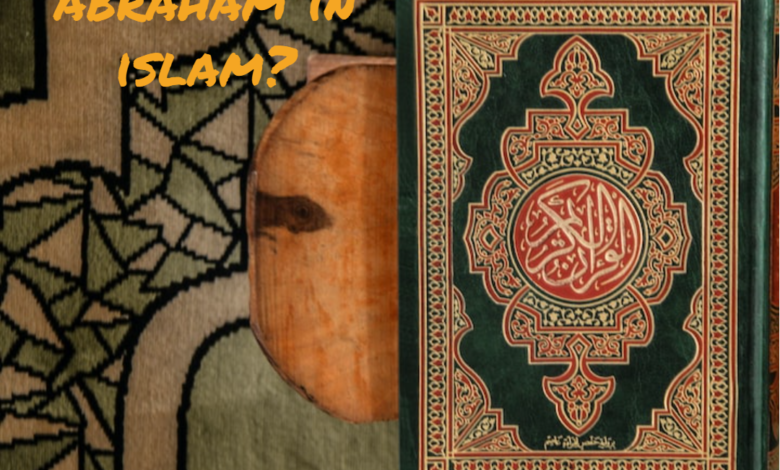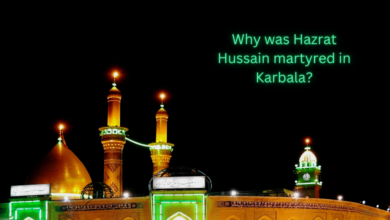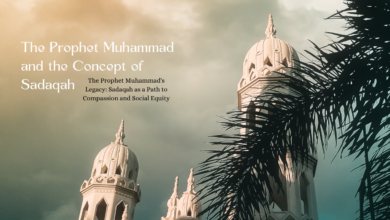who was abraham in islam

Introduction
Abraham, known as Ibrahim in Islam, holds a special place in the hearts of Muslims around the world. As one of the central figures in Islamic tradition, Ibrahim’s story is not only a tale of faith and devotion but also a testament to the unity of monotheistic beliefs across different Abrahamic religions. In Islam, Abraham is considered a prophet, a patriarch, and an exemplary model of unwavering faith in the one true God.
The Prophet Ibrahim’s Life and Challenges
Ibrahim’s story in Islam is detailed in various chapters of the Quran, the holy book of Islam. He is born in the ancient city of Ur in Mesopotamia (modern-day Iraq) and is chosen by God to be a prophet, conveying His message to the people. From a young age, Ibrahim questions the prevalent polytheistic beliefs of his society and embarks on a journey of spiritual discovery.
One of the most iconic moments in Ibrahim’s life is his willingness to sacrifice his beloved son Isma’il (Ishmael) as an act of obedience to God. This event, known as Eid al-Adha or the Feast of Sacrifice, is commemorated by Muslims worldwide. However, God intervenes and provides a ram to be sacrificed instead, signifying Ibrahim’s unshakable faith and his unwavering willingness to submit to God’s commands.
Ibrahim’s Call to Monotheism
Ibrahim’s unwavering dedication to monotheism and his rejection of idolatry were central themes of his mission. The Quran recounts his debates with his father and his people regarding the worship of multiple gods and their carved idols. Ibrahim’s logical arguments and deep spiritual insights challenged the status quo, inspiring people to reconsider their beliefs and embrace the concept of a single, all-powerful God.
Construction of the Kaaba
One of Ibrahim’s most significant contributions to Islam is the construction of the Kaaba, the sacred house of worship in Mecca. According to Islamic tradition, Ibrahim and his son Isma’il rebuilt the Kaaba as the first house dedicated solely to the worship of God. The Kaaba serves as the focal point of the annual Hajj pilgrimage, which is an obligatory religious duty for Muslims who are physically and financially able to undertake the journey.
Ibrahim’s Legacy of Unity
Perhaps one of the most remarkable aspects of Ibrahim’s story is his role as a unifying figure among the three major Abrahamic faiths: Islam, Christianity, and Judaism. Muslims, Christians, and Jews all regard Ibrahim as a patriarch and prophet. His story and devotion to a single God transcend religious boundaries, emphasizing the shared spiritual heritage that unites these faiths.
Conclusion
The story of Ibrahim in Islam is a tale of faith, sacrifice, and devotion that continues to inspire millions of Muslims across the globe. His unwavering commitment to monotheism, his pivotal role in constructing the Kaaba, and his legacy as a unifying figure among Abrahamic religions make him a timeless symbol of unity and faith. Ibrahim’s story serves as a reminder of the common ground that exists between different faiths and the importance of steadfastly upholding one’s beliefs in the face of challenges.
Who is Abraham in Islam?
Abraham, known as Ibrahim in Islam, is considered one of the most significant and revered prophets. He is recognized as the father of monotheism and is a central figure in Islamic tradition.
What role does Abraham play in Islamic history?
Abraham is considered a pivotal figure in Islamic history as he is believed to have been chosen by Allah (God) to revive the monotheistic faith and to guide people away from idol worship. He is also considered the forefather of many subsequent prophets.
What is the story of Abraham’s call to prophethood?
According to Islamic tradition, Abraham received his prophetic calling when he was a young man. Allah chose him to be a prophet and guided him to spread the message of monotheism among his people.
What is the significance of Abraham’s willingness to sacrifice his son in Islam?
The story of Abraham’s willingness to sacrifice his son, often referred to as the “Binding of Isaac” in Judeo-Christian tradition, is also present in Islamic tradition. In Islam, the son is identified as Isma’il (Ishmael). The story highlights Abraham’s unwavering faith and obedience to Allah’s command.
How is Abraham’s monotheistic message portrayed in Islamic teachings?
Abraham’s main message revolved around the concept of monotheism (Tawhid) — the belief in the one true God. He emphasized that there is no deity but Allah and sought to guide people away from polytheism.
What are the key events in Abraham’s life according to Islamic tradition?
Islamic tradition holds that Abraham underwent numerous trials and tests throughout his life, including his migration to escape the persecution of his people, his construction of the Kaaba in Mecca, and his interactions with various kings and rulers.






